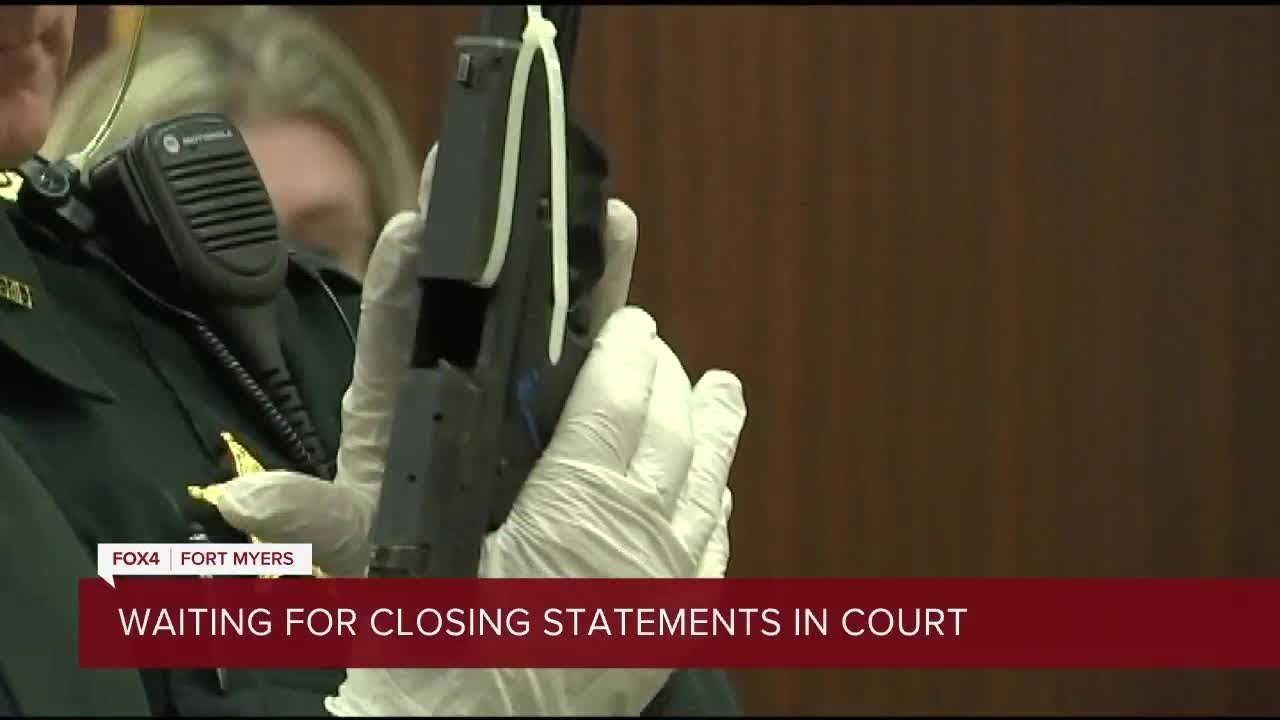After almost two weeks of testimony and evidence presentation, the trial for the killing of Fort Myers Police Department (FMPD) officer Adam Jobbers-Miller is winding down. Closing arguments are set to begin, and the prosecution and defense are expected to bring their strongest arguments to the forefront. The trial has been emotional and tense, with witnesses providing sometimes conflicting accounts of the events that led to Jobbers-Miller’s death. The outcome of the trial will have significant implications for the community and law enforcement agencies across the country.
Closing arguments set to start for the trial of the killing of FMPD officer
The trial for the killing of Fort Myers Police Department officer Adam Jobbers-Miller is coming to a close, with both the defense and prosecution set to give their closing arguments. Jobbers-Miller was shot in the line of duty while responding to a suspect in a gas station robbery back in July 2018. The suspect, Wisner Desmaret, was later arrested and charged with first-degree murder.
The Prosecution’s Case
Throughout the trial, the prosecution has presented evidence and testimony to support their claim that Desmaret intentionally and knowingly killed Jobbers-Miller. Key elements of their argument include:
– Desmaret’s alleged confession to killing the officer during a hospital visit for injuries sustained during the altercation
– DNA evidence recovered from Jobbers-Miller’s service weapon matching Desmaret’s DNA
– Eyewitness testimony placing Desmaret at the scene of the crime and involved in the robbery of the gas station
– Evidence of a gun found near Desmaret at the time of his arrest, matching the caliber of the weapon used to kill Jobbers-Miller
The prosecution has argued that these pieces of evidence, when taken together, leave little doubt as to Desmaret’s guilt. They have also highlighted the impact of Jobbers-Miller’s death on his family, fellow officers, and the community as a whole.
The Defense’s Case
Desmaret’s defense team has maintained his innocence throughout the trial, arguing that he did not have the intent to kill Jobbers-Miller and was acting in self-defense. Key elements of their argument include:
– Desmaret’s alleged history of mental illness and drug abuse, which they claim impaired his ability to make rational decisions
– Eyewitness testimony suggesting that Jobbers-Miller may have used excessive force or acted aggressively during the altercation
– Questions about the DNA evidence, including whether it could have been transferred through secondary contact or mishandling of the evidence
The defense has also stressed the importance of a fair and impartial trial, highlighting the emotional impact of Jobbers-Miller’s death on the community but cautioning against letting those emotions impact the legal process.
The Importance of Closing Arguments
Closing arguments are a critical stage of any trial, giving both sides an opportunity to highlight key evidence, raise doubts or questions about the opposing argument, and make a final appeal to the jury. The strength of each side’s closing argument can often make or break the outcome of the trial.
For the prosecution, the goal will be to emphasize the weight of the evidence and the finality of Jobbers-Miller’s death, while countering any arguments presented by the defense. They may also make a final appeal to the emotions of the jury, urging them to consider the impact of violence against law enforcement on the community as a whole.
For the defense, the goal will be to raise doubts about the prosecution’s evidence and arguments, emphasizing the importance of a fair trial and the possibility of alternative explanations for the events that occurred. They may also seek to humanize Desmaret, emphasizing his struggles with mental illness and addiction and arguing that his actions were the result of circumstances beyond his control.
The Outcome of the Trial
It is impossible to predict the outcome of any trial, particularly one as complex and emotionally charged as this one. However, the decision will ultimately rest with the jury, who must weigh the evidence presented by both sides and decide whether Desmaret is guilty of first-degree murder.
Regardless of the outcome, the trial and its eventual conclusion will have far-reaching implications for the community and the criminal justice system as a whole. The trial serves as a reminder of the bravery and sacrifice of law enforcement officers, as well as the ongoing challenges facing communities grappling with issues of police brutality and criminal justice reform.




































